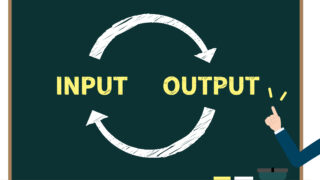こんにちは、こんばんは、おはようございます!
元不登校中学校卒業時英語の成績2だった英語の先生Kazumaです。
今日は、【留学先生日記】#8 〜しようとしたけど、…た Past form of be + going to for past intentionsを説明します。中学生、高校生で習う文法ではありませんが、中学2年生で習うものを少し応用すれば、かんたんに理解できます。サルでもわかるとでも言っておきましょう。”〜しようとしたけど、…た”って聞くと何か言い訳っぽく聞こえてきますよね?言い訳を言えるようになる文法です。私は、理屈っぽいところもあるので、自分が100%悪いと思わないと謝らないので、言い訳をフツーにします。”知らなかった、わからなかった”とかを平気で言います。言い訳をするのは良くないことですが、カナダで生活していて、言い訳が話せると聞くこともできます。身につけて損はないので、とても大切な文法だと感じました。つまり、言い訳を話せるということは、理由や状況を伝えられるということですよね。
私は、日本語が母国語で現在カナダのバンクーバーで語学留学をしています。大学生の頃、ブルガリアに2ヶ月間いたので、少しだけブルガリア語ができます。最近、身近な人の母国語がタガログ語、マンダリン、ポルトガル語だったりするのでブルガリア語のように緩く勉強はじめました。
そんな私が異なる言語を使う際に”今話している単語の品詞は名詞でその後に動詞を過去形にして”とか考えたことがありません。だから私は単語、表現、文法をイメージで覚えます。みなさん母国語ってそうやって習得しています。新しい言語を勉強して習得するにあたって、単語や文章のイメージができることがとても大切です。かんたんに説明をすると、”英語を英語で学び、英語で理解すること”です。
Vocabulary
〜しようとしたけど、…たを説明するうえでいくつか事前に学んでおくと良いVocabularyがあるので紹介します。意味を全て英語で説明しています。今回そこまで、難しい単語ではありませんが、日本の学校ではあまり学ばないものが多く、ネイティブスピーカーがよく使うものなので、覚えると日常会話で使えます。
make time for yourself: to take the time to do the things that make
you feel relaxed and happy
reduce your stress: to worry less about things in your work or
personal life
keep a work-life balance: to have time for work, your family and
friends, and yourself
set realistic goals: to make plans that are likely to be successful
take a break: to make time for a short rest
go offline: to stop using the internet for a period of time
take time off: to take a break from work or school for a period of time
burn out: to do an activity so often and for so long that you don’t
want to do it anymore
Vocabulary Practice
Complete the sentences with the phrases from ”Vocabulary”. More than one
answer may be possible. Use each phrase only one time.
1. Thinking positively and talking to trusted friends and
family are good ways to ( ).
2. You’re working too hard. You need to ( ).
Why don’t you stop and get some coffee?
3. He works all the time and he’s never home. He doesn’t know how to ( ).
4. You always promise to do too much, and then you can’t finish on time.
You need to ( ).
5. If you don’t take breaks, you’re going to ( ).
A.1. make time to yourself, reduce your stress, go offline
2. take a break, take time off
3. keep a work-life balance 4. set realistic goals 5. burn out
〜しようとしたけど、…た
Use was / were + going to to talk about something you intended, or planned, to do, but didn’t.

Notes
• When we talk about past intentions, we often explain why we did or didn’t do something.
• Use wasn’t and weren’t to form the negative:
I wasn’t going to exercise after work, but I changed my mind.
• Use was / were + going to + verb to form questions.
Was he going to meet us at 7:00?
Were you going to train for the marathon?
Subject + (was/were) + going to + base form of verb
+ , + but + Subject + verb
I was going to go to yoga class, but I didn’t go.
〜しようとしたけど、…た
I wasn’t going to exercise after work, but I changed my mind.
Were you going to train for the marathon?
今回の説明は、文法が少し複雑なので、長く解説しません。肯定文であれば、”〜しようとしたけど、できなかった。”とbut以下で理由や状況を伝えています。文の前後の意味をつかめれば、そんなに難しくありません。ようするに、文章のイメージできればすぐにマスターできます。語順は、Subject + (was/were) + going to + base form of verb + , + but + Subject + verbと長々としています。接続詞butがいるので長くなっているだけです。疑問文のときはbut以下が必要ありせん。ポンコツなのでそんなにしっかり説明できないのでこんなもんです。感覚で身につけてもらえたらと思います。
Practice
Complete the conversations with a form of be (not) + going to + the base form of the verb.
1. A: How was your run this morning?
B: Well, I (run) before work, but I woke up late.
2. A: It’s 9:00 P.M.! You should go home!
B: Well, I (work) late, but I wanted to finish tonight.
3. A: When are you going on vacation?
B: I (go) in April, but I’ll probably wait until May.
4. A: When is your family coming to visit?
B: They (come) this weekend, but they had to cancel.
5. A: Did you see the doctor about your sore foot?
B: I (make) an appointment today, but I’ve been so busy.
6. A: Why are you still here?
B: We (take) a break, but we decided to keep working.
7. A: You’re not working on your vacation, are you?
B: No, I’m not. I (take) my laptop, but I need some time offline.
A.
1. was going to run
2. wasn’t going to work
3. was going to go
4. were going to come
5. was going to make
6. were going to take
7. was going to take
まとめ
以上が〜しようとしたけど、…たでした。中学生で習う文法の応用で理解できます。学校では習いませんが、周りから使うと少しスマートだと思われまるかもしれません。バンクーバーに来てからそんなに使っていませんが、学校をサボるときに使おうと思っています。ポンコツが、ムダを省いてかんたんにまとめてみました。みなさんは私みたいに毎日寝坊しないでくださいwww
エポスカードは、海外旅行保険が自動付帯のクレジットカード


















